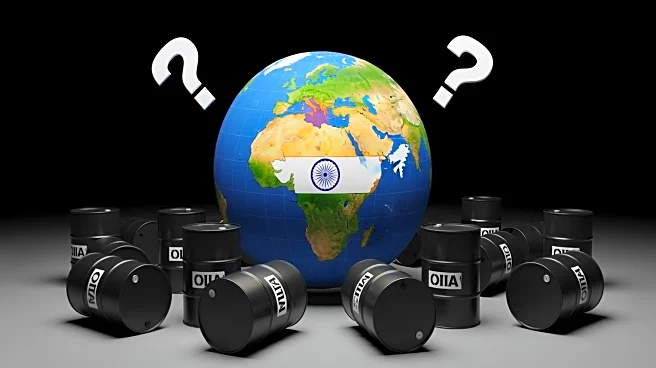What's Happening?
India has expressed skepticism over President Trump's claim that Prime Minister Narendra Modi agreed to stop purchasing Russian oil. The Indian government has stated it is unaware of any such conversation between the two leaders. President Trump had announced
that Modi assured him of ending Russian oil imports, a move intended to increase pressure on Russia amid the Ukraine conflict. However, India's foreign ministry has emphasized that its import policies are guided by consumer interests in a volatile energy market. India has been a key customer for Russian energy since the war began, benefiting from discounted prices.
Why It's Important?
The dispute over Russian oil imports is a significant point of contention in U.S.-India relations, particularly as the Trump administration seeks to isolate Russia economically. India's continued reliance on Russian oil challenges U.S. efforts to pressure the Kremlin and could affect diplomatic relations and trade negotiations. The situation highlights the complexities of international energy politics, where economic interests often conflict with geopolitical strategies. The outcome of this disagreement could have implications for global energy markets and diplomatic alliances.
What's Next?
As discussions continue, both the U.S. and India will likely seek a resolution that addresses their respective interests. The U.S. may continue to pressure India to reduce its Russian oil imports, while India will prioritize its energy security and consumer interests. The situation remains fluid, with potential diplomatic and economic repercussions depending on how the issue is resolved. The outcome could influence future trade negotiations and geopolitical strategies.
Beyond the Headlines
This development underscores the challenges faced by countries in balancing domestic priorities with international pressures. India's strategic position between the U.S. and Russia exemplifies the complexities of global energy politics. The situation also raises questions about the effectiveness of economic sanctions and the role of energy diplomacy in shaping international relations.















